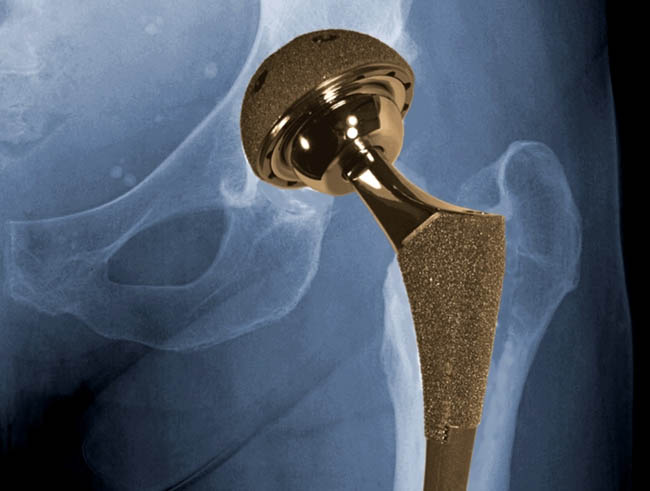
For many decades, hip replacements were performed using either plastic or ceramic orthopedic implants. In the last decade metal implants have become increasingly popular. Although metal was initially thought to be more sustainable than plastic or ceramic, many problems have been brought to light, causing the FDA to reexamine metal implants.
Initial Beliefs on Benefits of Metal Implants
When metal hip replacement implants became popular about a decade ago, they were believed to be superior over traditionally-used plastic and ceramic implants for a variety of reasons. Some of these reasons are:
- Metal-on-metal devices were to be more resistant to wear
- Chances of suffering a dislocation are decreased as the socket does not wear out
- As metal is considered more durable, there would be less chance for another replacement surgery prior to the 10-15 year window that hips normally last
What is happening with Metal Implants now
After several years of using metal-on-metal implants, orthopedic surgeons began seeing an increase in the amount of patient complaints of pain and swelling that would not subside in these patients. In some cases, the implants had to be removed, which meant another hip replacement surgery for the patient.
Physicians working at the national artificial joint registry in the U.K. began seeing a trend with metal-on-metal implants. Rather than lasting longer than other implants, patients who had metal implants were being sent for replacement surgery more often than patients who had another type of implant. These surgeons estimated that approximately six percent of all patients who had metal implants needed replacement surgery before the normal 10-15 year time period hip replacements last. Although this number is not staggering, it is quite a bit larger than the two percent of patients who needed additional surgery with plastic or ceramic joints.
Although there is no national registry for artificial joints in the United States, several hospitals have their own registry. One hospital, Minnesota HealthEast Care System, set up a registry and has reported that four times as many patients with metal-on-metal implants needed additional replacement surgeries than those who received plastic or ceramic implants. The Kaiser Permanente group set up a registry as well, although their information was not the same. Kaiser Permanente reports they have seen no difference in additional replacement surgeries between the various types of implants.
As there is limited information in the United States about hip replacement implants, the FDA has started looking at countries with tracking registries. In addition, they have requested of the companies that manufacture metal-on-metal hip implants, Johnson & Johnson, Zimmer Holdings, Inc. and Biomet Inc. that individual studies be completed on metal implants. The FDA is requesting each company to conduct follow-up studies on more than 100 metal-on-metal implants in the United States.
The FDA is hoping to gather information related to the metal implants, especially about the effects, if any, of the metal chips in the blood as the metal implant wears out. This comes on the heels of the U.K. advising all surgeons to cease using metal-on-metal implants and to perform blood testing on patients who have metal hips each year, to ensure the patient does not have dangerous levels of metal in the bloodstream. This has not been requested of the surgeons in the United States because there is no tracking system. It is estimated that approximately 500,000 people in the United States have received metal-on-metal hip implants.
What to do if you have Metal Implants
The results of the FDA’s findings will not be available for eight to ten years. This is because it will take at least eight years for the companies to conduct their studies and formulate a definitive answer for the FDA. For patients who already have these implants, this study will likely be of no help.
The most common issues with metal-on-metal implants are patient complaints of pain, swelling and increased levels of metal in the blood. In addition, Johnson & Johnson recalled their ASR hip replacement in 2010. This recall came because of an increased number of reports of the artificial joint failing after only a few years, requiring an additional replacement surgery.
If you have a metal-on-metal hip joint, request a blood test from your physician. Find out if the artificial joint is deteriorating prematurely. Make sure you are safe! Furthermore, if you are experiencing pain or continued swelling in the area of the artificial hip, make an appointment with your physician or surgeon to determine a course of action. Take care of yourself and your body, it’s the only one you’ve got!
Contact Douglas and London for a free case assessment. The Douglas and London Law Firm represents clients across the entire US. Bringing decades of experience to the courtroom, they are the premier law firm in New York.





